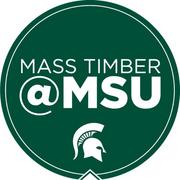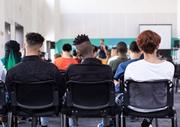
Enhancing Design and Construction Technology Education Through the Context of Mass Timber
www.canr.msu.edu/masstimber/index
This project aims to serve the national interest by creating a national standard design and construction curriculum for mass timber. Mass timber, a broad term for a variety of engineered wood building materials, is an emerging construction technology in the US with up to 2,500 mass timber buildings expected to exist in the US by 2023, supported by an expected architecture, engineering, and construction (AEC) workforce of over 90,000 technicians by 2029.
The project will prepare students to move into technician-level design and construction careers that include the pursuit and execution of mass timber projects. Previous data collection efforts have indicated that modular curriculum frameworks and virtual and augmented reality (VR/AR) environments are in high demand among AEC faculty members for both students and faculty lacking access to nearby mass timber buildings. This project will benefit the AEC industry and broader society by providing a trained workforce for mass timber design and construction in the United States.







